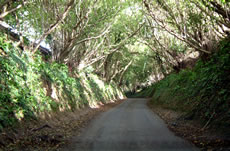| Back |
Frequently Asked Questions
County Press Briefing - 29 March 2011.
What is PFI?
 Private Finance Initiative (PFI) is the means by which public sector services are delivered by the private sector. The up-front capital investment is made by the private sector to put in place an efficient service; the private sector then delivers the service over a long period, typically 25 to 30 years (known as a concession period), and gets paid according to the level of service delivered. The payment is, therefore, directly linked to service performance and not to how much work is done on the ground. The Private Finance Initiative was introduced to the UK by central government in the early 1990’s and to date well over £60bn worth of projects have been commissioned. PFI is now used to deliver services in the NHS, Prisons, Waste Management, London Underground, Road Construction, Public Sector Office Services and, more recently, Highway Maintenance.
Private Finance Initiative (PFI) is the means by which public sector services are delivered by the private sector. The up-front capital investment is made by the private sector to put in place an efficient service; the private sector then delivers the service over a long period, typically 25 to 30 years (known as a concession period), and gets paid according to the level of service delivered. The payment is, therefore, directly linked to service performance and not to how much work is done on the ground. The Private Finance Initiative was introduced to the UK by central government in the early 1990’s and to date well over £60bn worth of projects have been commissioned. PFI is now used to deliver services in the NHS, Prisons, Waste Management, London Underground, Road Construction, Public Sector Office Services and, more recently, Highway Maintenance.
Who is paying for the Isle of Wight Highways PFI?
Under the Highways PFI, £260 million Government grant from the Department of Transport, will be used to bring the Island’s highways infrastructure up to the standard residents expect. The Isle of Wight Council will use the grant to rehabilitate the Island’s roads, footways, street lighting and most other aspects that are related to the highway. This grant does not have to be repaid and so it is wrong to call this money either a ‘mortgage’ or a ‘loan’.
The grant at today’s prices is £260 million. Because it will be paid over many years, its value at the end of the PFI period will be far greater however, probably around £497 million. The simplest way of explaining this growth is to imagine putting £260 million in the bank. After 25 years of interest, this will have grown considerably in value.
Added to the grant is an annual contribution from the council. This money is that which the council already spends providing the routine highways services that are to be included in the scope of the Highways PFI. As such this contribution is not ‘new money’ nor is it being taken from other council services.
It is currently estimated that the council’s contribution will be £8.3 million in the first year. The council’s contribution will, like all other expenditure, be affected by inflation this would not be any different than if the work were not procured through the PFI.
How is the council contribution to the Highways PFI calculated? (in response to question at Full Council)
The council, as the Highway Authority, is responsible for the safe operation and maintenance of the public highway which includes roads, footpaths, cycle paths, cycle tracks and all associated assets.
This duty represents a very large undertaking for the authority covering a wide range of services, duties and activities.
For example, operational services and costs include street cleansing, winter maintenance, energy for street lighting, operating CCTV and traffic lights, grass cutting, maintaining hedges, and the opening, closing and maintenance of Yar Bridge. The council also maintains bus shelters and street furniture, attends to road traffic accidents, and removes fallen trees and animal carcasses from highways.
The council also deals with emergencies such as flooding and supports special events including the music festivals. It maintains festive decorations, allocates road space for utilities, issues licences for skips and hoardings and also supports the planning services in dealing with planning applications.
Customer inquiries, Freedom of Information requests, government statistics and dealing with insurance claims also forms part of the council’s duties. All these services are aimed at delivering a safe highway for the travelling public and this assurance is provided by road, footway, geotechnical and bridge inspections. Where maintenance work need road closures, a temporary order may need to be set in place.
All these operations are currently delivered by over 70 staff in the Highways and Transport department and other areas of the council. The. cost of employing these staff, their accommodation and overheads form part of the cost of delivering highway services. In 2009, when the Outline Business Case (OBC) was made to the Department for Transport (DfT) for the £260m grant (in today’s value), this cost delivering these highway services was £8.3m. Under the Highways PFI contract, these services will be delivered by the selected Service Provider and this will form the basis for the council’s contribution towards for the Highways PFI Contract. This annual contribution is still being negotiated but is likely to be less than £8.3 million. In other words, the cost of providing these services under PFI is less than under the current arrangement; council tax payers will be paying less for an improved service.
The attached table shows the year on year spend in all the areas that are within the scope of this contract since 2009. If the council did not enter into a Highways PFI Contract 2013, it would have to continue to spend these funds to provide the vital highway services and these costs would have continued to go up in line with inflation. Similarly, the cost of providing the same services under the Highways PFI Contract will increase year on year by inflation, and this is allowed by indexing the council contribution by Retail Price Index (excluding mortgages) known as RPIx.
The breakdown of these costs can be viewed by clicking on the link below:
Highways PFI – the Department for Transport Grant
The Isle of Wight council is one of the three local authorities selected by the Department for Transport, as a path finder project, to provide a 25-year grant that allows us to enter into a long-term contract with guaranteed funding for such a long period. This long term certainty of funding coupled with the significant increase in Highway Maintenance Grant means that the council, the new Service Provider and the Island based sub-contractors who would work for the Service Provider will have certainty of funding to invest on new equipment, train staff and employ apprentices.
The council is in a fortunate position to address the condition of our road network, one of the key concerns Island residents, by securing the Highways PFI Grant, which is a five-fold increase in the level of grant that the council receives currently. In addition, the council will continue to have the ability to gain the Integrated Transport Grant to make safety improvements. This will see the grant from the Department of Transport increasing to more than six fold in the longer term. The benefits from this increased investment include not just the improvement of the standard of roads but also employment opportunities for locally-based contractors and a major opportunity for employment for the future generation of children on the Island.
Why are we then not getting on with repairing our roads now?
 The Department for Transport grant is subject to certain conditions – we have to prove that this unprecedented level of investment on Island roads actually makes sense. This means we had to provide to the DfT a “Business Case” that sets out what our highway asset is made up of, what condition it is in, how can we upgrade this without disrupting too much of Island life and the economy, and what are the benefits of making this investment.
The Department for Transport grant is subject to certain conditions – we have to prove that this unprecedented level of investment on Island roads actually makes sense. This means we had to provide to the DfT a “Business Case” that sets out what our highway asset is made up of, what condition it is in, how can we upgrade this without disrupting too much of Island life and the economy, and what are the benefits of making this investment.
Now that this case has been accepted by DfT (and HM Treasury), we have started the procurement process following the procedures set under the European regulations for “complex project procurement”. There are a number of stages involved in this; we have to define what performance standards we expect to get in each and every component of the highway and associated areas, and link them to payments. We also have to set out the condition in which we expect to get the highway back to us. The legal roles and responsibilities during the 25 year period have to be defined and we need to think of, and build in, incentives and disincentives. More than anything else, we need to make sure the Highways PFI contract offers Value for Money, which means that we need to be able to prove that the service provider can deliver the services more efficiently and cost effectively than the public sector does. This procurement process can take anything up to two and a half years. In the meantime, the Council is continuing to invest in the Island’s road maintenance as normal until the PFI contractor is ready to take over.
What is included in the Highways PFI?
 Although called the Highways PFI, the true scope of work included in the project goes much further.
Although called the Highways PFI, the true scope of work included in the project goes much further.
It will include the management and maintenance of over 800kms of highways, over 12,000 street lighting columns and a further 2,000 or more illuminated street furniture items. The project will also encompass the Island’s roads, pavements and cycleway network, bridges, retaining walls, CCTV, street lighting, car parks and traffic lights.
The Highways PFI will also operate the network (paying for street lighting electricity, attending road accidents, flooding emergencies etc) as well as street cleansing and litter bins.





